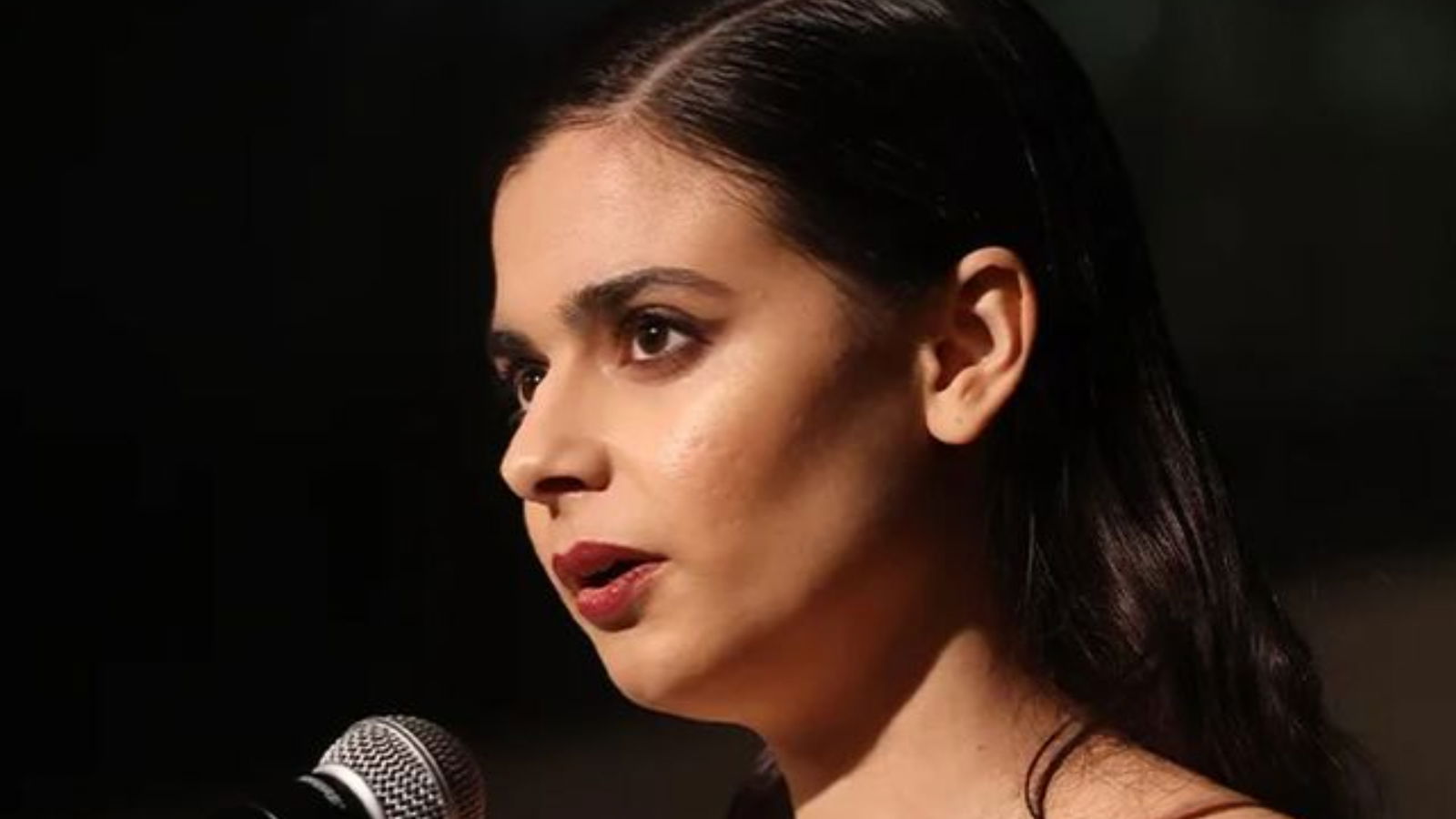How ALL THE LIGHT WE CANNOT SEE Star Found New Passion
By Movieguide® Contributor
ALL THE LIGHT WE CANNOT SEE breakout star Aria Mia Loberti found healing and a new voice through the lead role that she never expected to land.
Loberti had been three weeks into a Ph.D. program in ancient rhetoric when she learned about the casting call for the Netflix adaptation of the Pulitzer Prize-winning novel. Having always been interested in storytelling and acting, she decided to audition for the sake of an old dream but never expected to land the role.
“As much as I loved studying and reading about how the world can change because of the words we use, I wasn’t out in the real world doing those things,” she said. “I really wanted to be a storyteller.”
“I thought I was going on the audition for fun and for my own healing, and I didn’t realize that I would find the career that I had always been looking for,” Loberti continued. “That’s the power of storytelling – the power to bring people together to create commonalities where we may not find any.”
“It’s amazing, because I never allowed myself to dream about this,” she said of landing the role.
ALL THE LIGHT WE CANNOT SEE tells the story of a blind French girl and her father who flee Nazi-occupied Paris with a jewel that they wish to protect from German hands. The story focuses on the struggle between good and evil and emphasizes the value of good morals. A portion of Movieguide®’s review reads:
ALL THE LIGHT WE CANNOT SEE is riveting and well stocked with intense jeopardy. Each episode ends with a cliffhanger. The dialogue is also magnificent as is the acting, the sets, the costumes, and the direction. Some flashbacks are sometimes disorienting, however. ALL THE LIGHT WE CANNOT SEE is an extremely exciting, morally affirming, heroic miniseries. It’s a powerful testimony of good triumphing over evil with strong Christian references, but it has some strong foul language and violence. MOVIEGUDIE® advises extreme caution.
The amazing story is accentuated by the main character’s blindness, which is used to overtly refer to Christianity in a positive way. Loberti, who also has low vision, used this role as an opportunity to portray blindness in a positive way and combat harmful stereotypes. She worked closely with the director to do this in a way that honored his vision for the story.
“Our relationship developed so that this could be portrayed authentically, even though that may not be what much of the audience expects a blind character to look like, or how they expect them to perform,” Loberti explained.
“But his population is very diverse and my experience as a person with low vision is remarkably different from this character’s,” she continued. “I can bring my lived experience to that. We were teaching each other every single day.”
“Everyone has these misconceptions about blindness and about disability in general, because 100 years of films and generations, even millennia, of media have enforced these stereotypes,” she added. “So even within beautiful pieces of art, some inappropriate stigmas have been enforced unknowingly. The experience of blindness can’t be portrayed as, say, a difference in eye contact of movement of expression – you know, eye contact off into the distance, palms out – none of those things are true. That’s the conception of a sighted person putting on a sleep shade, really.”
Loberti further sought to break these stereotypes by performing her own stunts. Her decade-plus experience as a ballerina combined with a background in martial arts allowed her to shoot a revolver, survive a grenade and film a scene where her character nearly drowns in a cave.
“I find that that physicality in general is really valuable, but especially with a character like this,” Loberti said. “There is this misconception that people are not capable, and that is so wrong.”
ALL THE LIGHT WE CANNOT SEE was recently nominated for a Golden Globe Award.
“I am really grateful to now call myself an actor and am privileged that THIS is the first piece of art I got to help make. From the bottom of my heart….Thank you,” Loberti said on Instagram, reflecting on the nomination.
Movieguide® previously reported:
ALL THE LIGHT WE CANNOT SEE’s crew recently shared the creative process behind adapting the book, why they didn’t want to replace the source material and how the story speaks to world events today.
“It’s so well written, it’s so beautiful it’s so big that pretty much only a fool would want to adapt it,” writer and executive producer Steven Knight told Movieguide® of the book the miniseries is based on. “I wanted to do was to try to do justice to the book without ever suggesting it’s a replacement for the to the book or a diversion from the book. The book is still there, but this is another way of enjoying that brilliant piece of imagination.”
“The book is the mountain,” director Shawn Levy told Deadline. “The mountain will always exist. Long after us, the mountain will be here. We did a painting of that mountain. It’s our impression of that mountain.”
Levy had been working for years to secure the rights to the novel of the same name, written by Anthony Doerr. When it finally came time for him to make the series, the director put his all into it, from shooting on location in Saint-Malo to casting a blind actress to play lead Marie-Laure.
https://www.instagram.com/p/C0fnCQzrf23/?hl=en&img_index=1
Questions or comments? Please write to us here.


 - Content:
- Content: 


